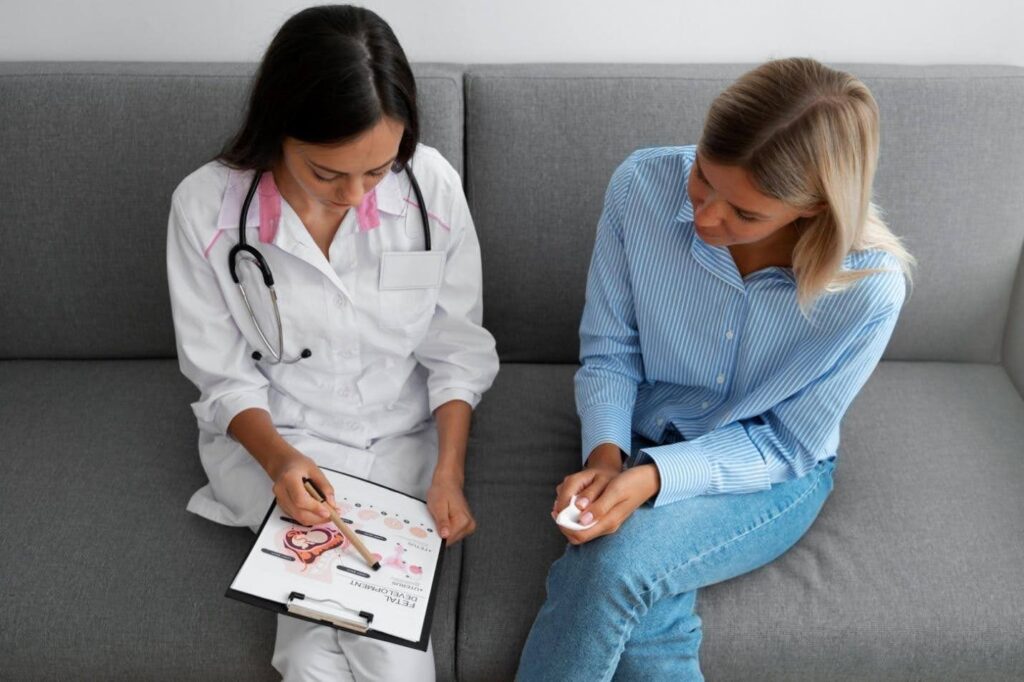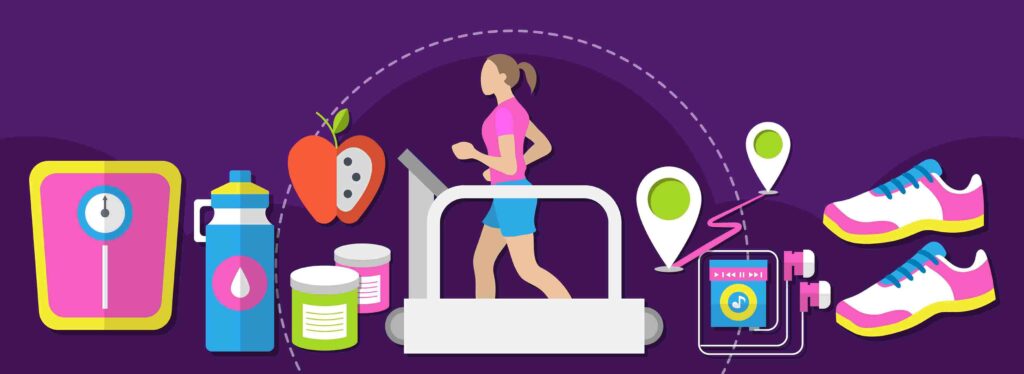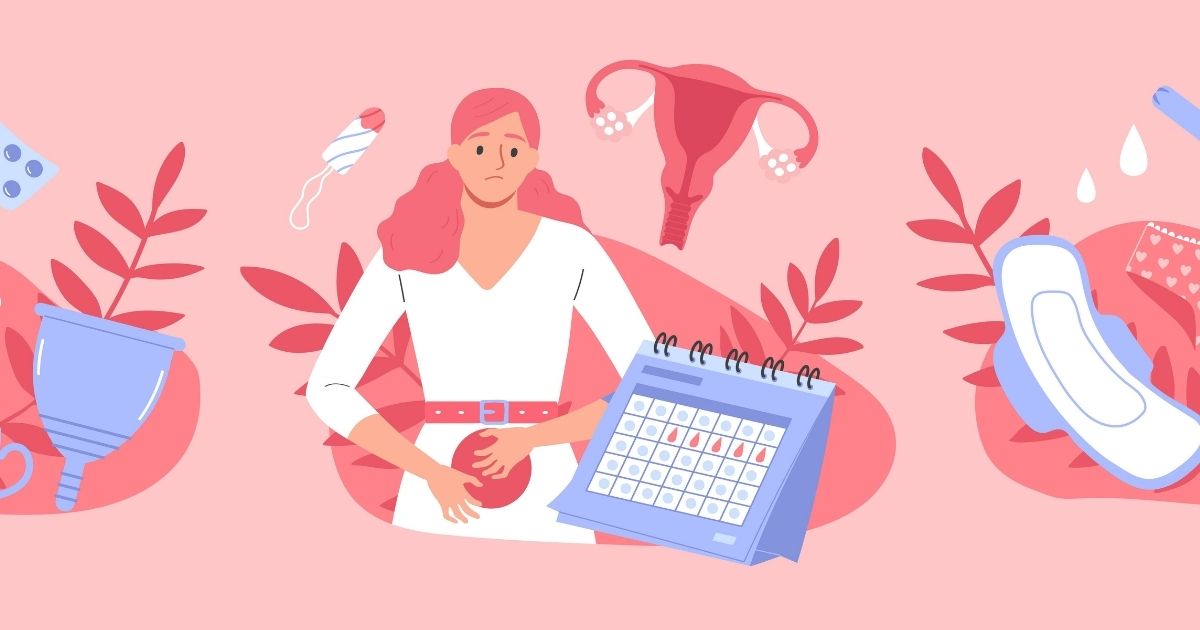Dr. Shraddha Goel

PCOS (Polycystic Ovary Syndrome) is a common hormonal disorder that affects adolescent females, often causing a range of symptoms including irregular periods, acne, weight gain, and difficulty conceiving. This article emphasizes the importance of early detection and comprehensive treatment for adolescent girls with PCOS. We’ll delve into effective treatment options and lifestyle strategies to manage PCOS in adolescent females, aiming to empower young individuals with the knowledge they need to navigate this condition effectively.
Understanding PCOS in Adolescents:
What is PCOS?
PCOS is a complex hormonal disorder characterized by an imbalance of reproductive hormones, leading to a variety of symptoms such as irregular menstrual cycles, excess androgen levels, and ovarian cysts. In adolescents, PCOS can manifest differently than in adults, making it crucial for early diagnosis and intervention.
Common Symptoms in Adolescent Females:
- Irregular menstrual cycles or absent periods
- Excessive facial or body hair growth (hirsutism)
- Acne and oily skin
- Weight gain or difficulty losing weight
- Insulin resistance and risk of diabetes
- Mood swings or depression
Diagnosis and Treatment Approaches:
Diagnosis of PCOS:
Diagnosing Polycystic Ovary Syndrome (PCOS) in adolescent females is challenging due to symptoms often overlapping with normal puberty changes like oily skin, acne, and irregular periods. Accurate diagnosis requires careful evaluation by a healthcare professional, ideally a specialist in PCOS, who will conduct a thorough medical history review, physical examination, and specific laboratory tests. These tests typically include assessing hormone levels and ultrasound imaging of the ovaries to detect hormonal imbalances and ovarian cysts characteristic of PCOS. Given the complexity of symptoms, a multidisciplinary approach involving gynecologists, endocrinologists, and other specialists is crucial for early intervention and preventing long-term complications associated with PCOS, underscoring the importance of timely expert consultation for adolescent females.
Lifestyle Modifications:
- Healthy Diet: Encouraging a balanced diet rich in fruits, vegetables, lean proteins, and whole grains can help regulate insulin levels and manage weight, which is crucial in PCOS management
- Regular Exercise: Engaging in regular physical activity helps improve insulin sensitivity, promote weight loss, and reduce the severity of PCOS symptoms
- Stress Management: Teaching stress-reduction techniques such as meditation, yoga, or mindfulness can help alleviate the psychological impact of PCOS

Medical Treatment Options:
- Hormonal Birth Control: Oral contraceptives containing estrogen and progestin can regulate menstrual cycles, reduce androgen levels, and improve acne and hirsutism in adolescent girls with PCOS. However, it’s crucial to approach the use of hormone birth control pills judiciously, especially in the adolescent age group, and only under the guidance of experts. At our practice, we take pride in providing holistic treatment for PCOS adolescents, emphasizing alternatives to birth control pills whenever possible. Our approach focuses on comprehensive care strategies tailored to individual needs, aiming to optimize outcomes while minimizing potential risks associated with hormonal contraceptives.
- Anti-androgen Medications: It is possible to give medications such as spironolactone to block the effects of androgens, which will reduce symptoms such as acne and hirsutism.
- Antioxidants: Integrating antioxidants into PCOS management can be beneficial. Antioxidants help combat oxidative stress, a significant factor in PCOS pathogenesis, promoting overall health and potentially mitigating associated symptoms. This holistic approach complements other treatment modalities, contributing to comprehensive care and improved patient outcomes.
- Insulin-sensitizing Agents: Metformin, a medication commonly used to treat type 2 diabetes, may be prescribed to improve insulin sensitivity and regulate menstrual cycles in girls with PCOS who are insulin resistant. Additionally, emerging research highlights the efficacy of inositols, such as myo-inositol and D-chiro-inositol, as insulin-sensitizing agents in PCOS management, offering potential benefits in improving metabolic parameters and reproductive function.
Fertility Preservation:
While fertility concerns may not be immediate for adolescent girls with PCOS, it’s essential to address the long-term implications of the condition. It emphasizes the importance of discussing fertility preservation options and family planning with adolescent patients and their families.
Complementary Therapies:
Some adolescents with PCOS may benefit from complementary therapies such as acupuncture, herbal supplements, or dietary supplements like inositol, which have shown promise in improving hormonal balance and menstrual regularity.
Regular Exercise:

Incorporating regular physical activity into PCOS management is essential. Activities such as yoga, Zumba, and strength training offer numerous benefits, including improved physical fitness, weight management, hormone regulation, and stress reduction. Additionally, cultivating a happy mindset is crucial in PCOS treatment. Practices like maintaining a gratitude diary promote emotional well-being, resilience, and overall quality of life, complementing medical interventions by fostering a positive outlook and effective coping mechanisms. By integrating these holistic approaches into PCOS care, we aim to optimize outcomes and promote long-term health and happiness for our patients.
Education and Support:
Providing education and support to adolescent girls with PCOS is essential for empowering them to manage their condition effectively. Here it was emphasized that the importance of open communication and providing resources to help girls understand their diagnosis, treatment options, and lifestyle modifications. Support groups and online communities can also offer valuable peer support and encouragement, helping adolescents feel less alone in their journey with PCOS.
Regular Monitoring and Follow-Up:
Regular monitoring and follow-up appointments with healthcare providers are crucial in managing PCOS in adolescent females. It is recommended in establishing a proactive approach to healthcare, scheduling regular check-ups to monitor symptoms, assess treatment effectiveness, and make any necessary adjustments to the treatment plan. This proactive approach helps ensure that any changes in symptoms or health status are addressed promptly.

Nutritional Guidance:
The medical practitioner stresses the importance of personalized nutritional guidance for adolescents with PCOS. While a balanced diet is crucial, specific dietary interventions tailored to individual needs can optimize health outcomes. This might include recommendations to manage blood sugar levels by avoiding refined carbohydrates and sugary foods, incorporating more fiber-rich foods to promote satiety and digestive health, and emphasizing the importance of adequate hydration. Nutritionists or dietitians specializing in PCOS can offer valuable insights and practical strategies to help adolescents make healthier food choices and develop sustainable eating habits.
Importance of Sleep Hygiene:
Adequate sleep is essential for overall health and well-being, particularly for adolescents with PCOS. The importance of prioritizing sleep hygiene to optimize hormonal balance and metabolic function is prioritized. Encouraging adolescents to establish a regular sleep schedule, create a relaxing bedtime routine, and minimize screen time before bed can help improve sleep quality and regulate circadian rhythms. Addressing sleep disturbances and promoting healthy sleep habits can have a positive impact on mood, energy levels, and overall health in adolescents with PCOS.
Empowering Self-Care Practices:
In addition to medical interventions, empowering adolescents with PCOS to practice self-care can foster resilience and improve quality of life. Girls were encouraged to prioritize self-care activities that promote physical, mental, and emotional well-being. This might include engaging in hobbies or activities they enjoy, practicing mindfulness or meditation to reduce stress, setting boundaries to protect their time and energy, and cultivating supportive relationships with family and friends. By nurturing self-care practices, adolescents with PCOS can enhance their sense of self-esteem and self-efficacy, empowering them to navigate the challenges of PCOS with confidence and resilience.
Holistic Approach to Treatment:
Holistic approach is advisable to PCOS treatment that addresses the interconnectedness of physical, emotional, and social factors. In addition to medical interventions, holistic treatments such as acupuncture, yoga, or massage therapy may complement conventional therapies and promote holistic healing. These modalities can help reduce stress, improve hormonal balance, and enhance overall well-being in adolescents with PCOS. By embracing a holistic approach to treatment, healthcare providers can empower adolescents to take an active role in their health and explore complementary therapies that resonate with their individual needs and preferences.
Family Involvement and Support:
Family support plays a crucial role in helping adolescents navigate the challenges of PCOS, providing emotional support, encouragement, and practical assistance. Educating family members about PCOS, its impact on adolescent health, and the importance of empathy and understanding can foster a supportive environment where adolescents feel valued, heard, and empowered to manage their condition effectively. By fostering strong family bonds and open communication, healthcare providers can create a supportive network that enhances the well-being of adolescents with PCOS and promotes positive health outcomes in the long term.
Advocacy and Awareness:
Increased awareness and advocacy efforts to ensure that PCOS receives the attention it deserves as a significant health concern for adolescent females. By raising awareness about PCOS and advocating for improved access to care and support services, we can empower girls to seek timely diagnosis and comprehensive treatment, ultimately improving outcomes and quality of life for individuals living with PCOS. Through education, support, and advocacy, we can work together to create a brighter future for adolescent girls with PCOS, helping them thrive and reach their full potential.
PCOS can significantly impact the physical and emotional well-being of adolescent females, but with early diagnosis and comprehensive treatment, it can be effectively managed.By empowering adolescent girls with the knowledge and resources they need to manage PCOS, we can help them lead healthier and happier lives into adulthood.
Authors Biography
Dr. Shraddha Goel, is the Head and Director of PCOSmetic Gyne Clinic, Jaipur. She has more than 16 years of vast experience in the field of Obstetrics and Gynecology.

